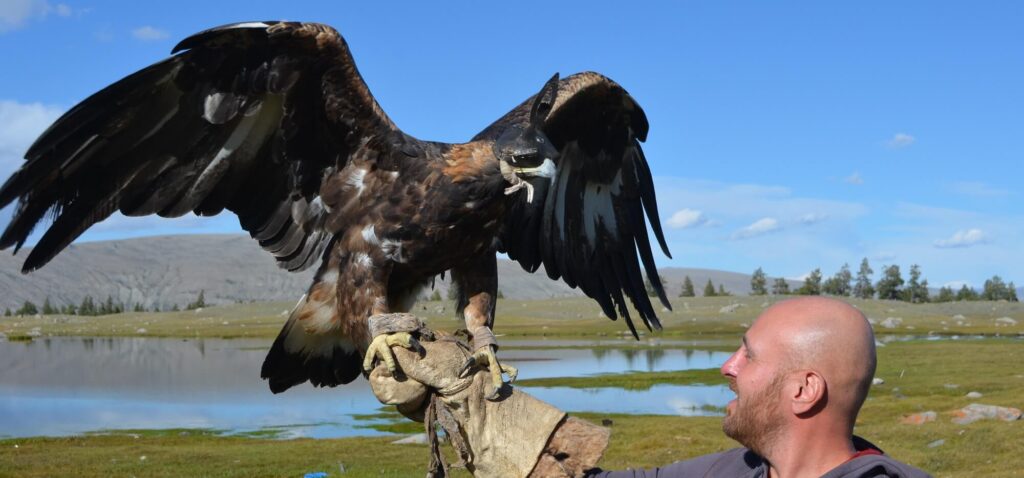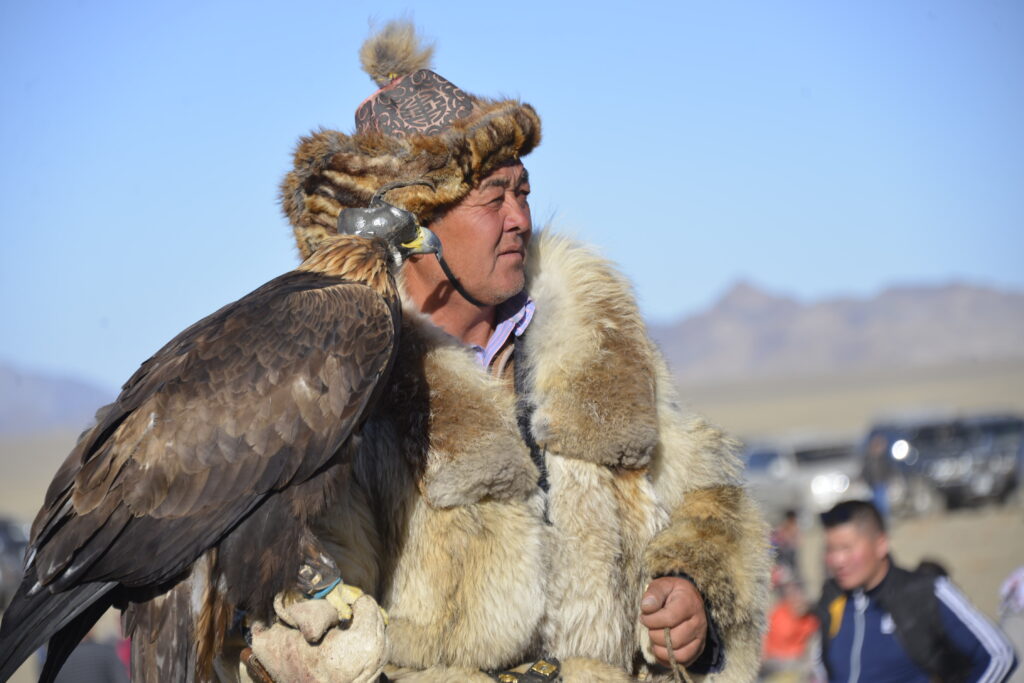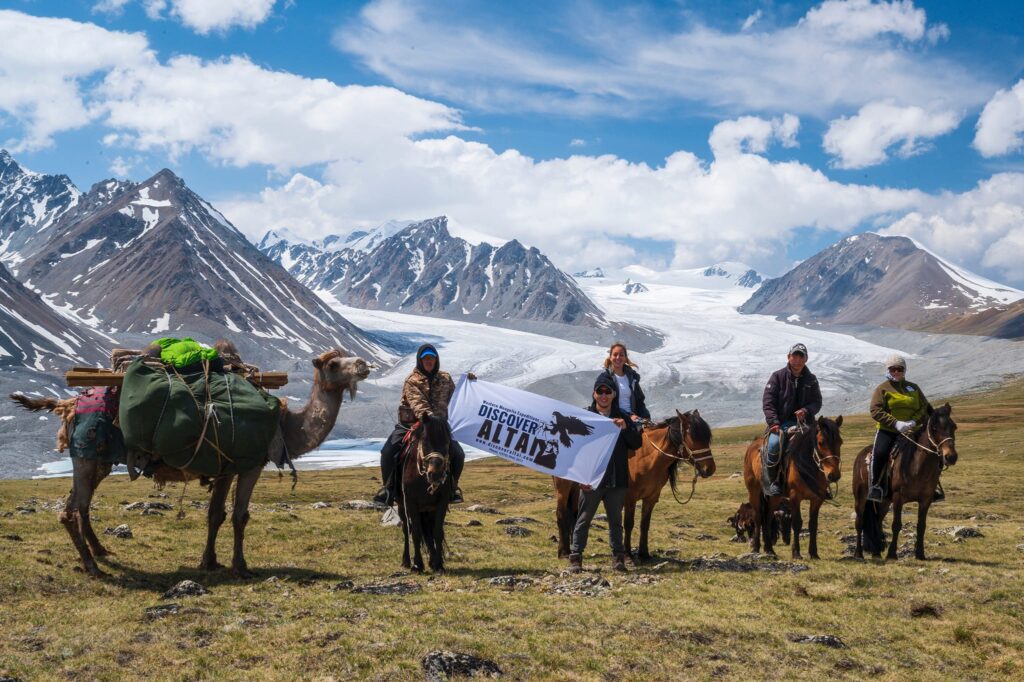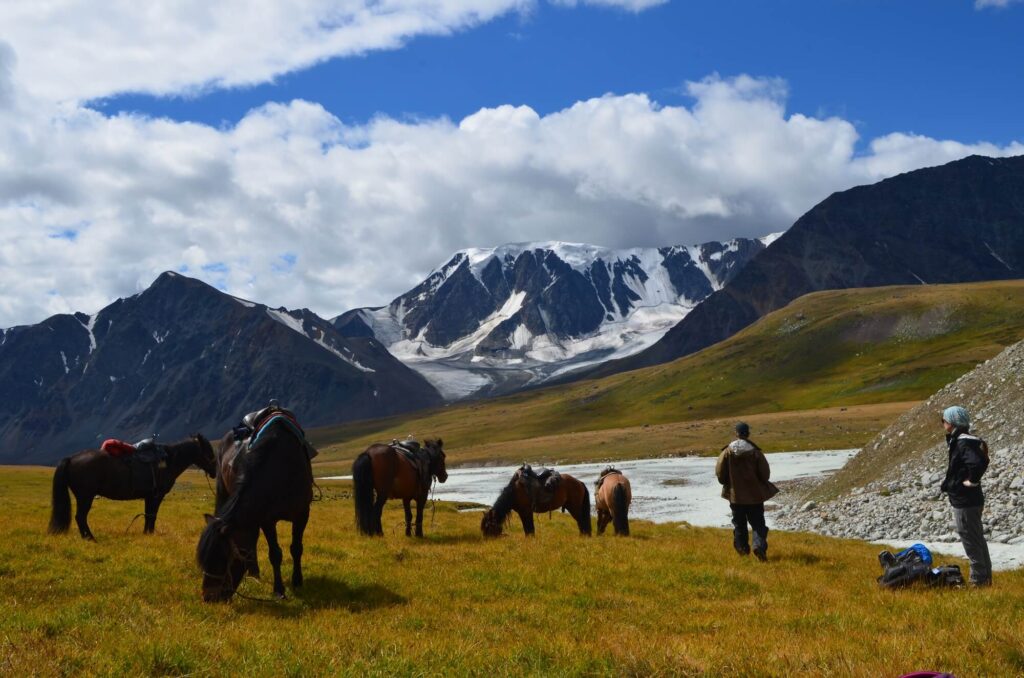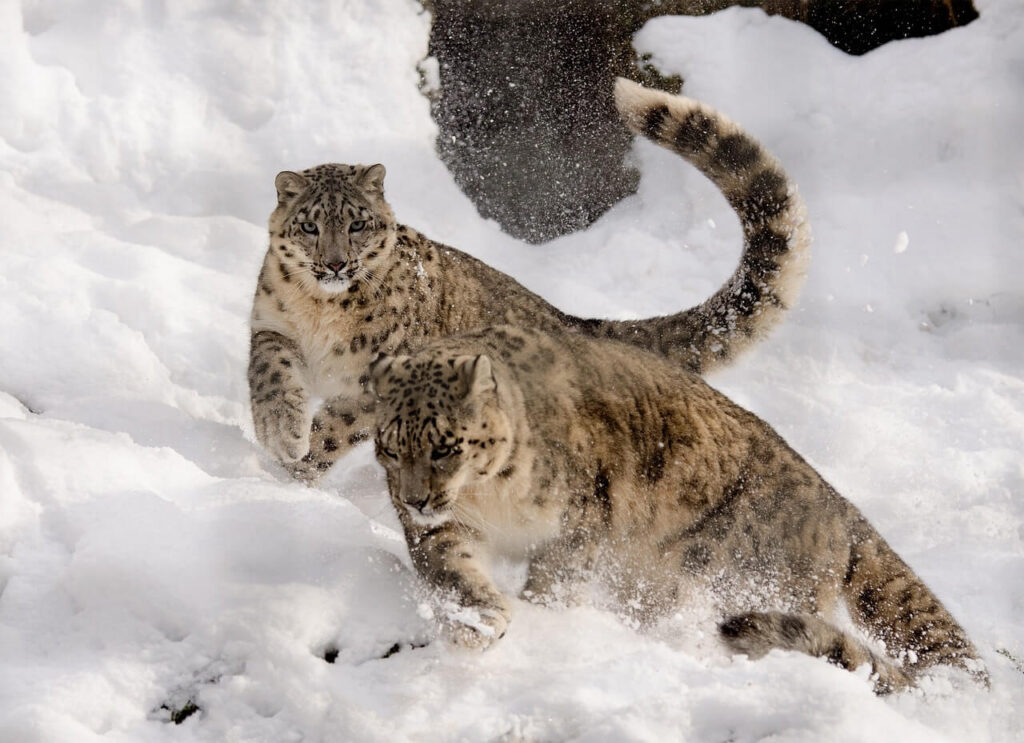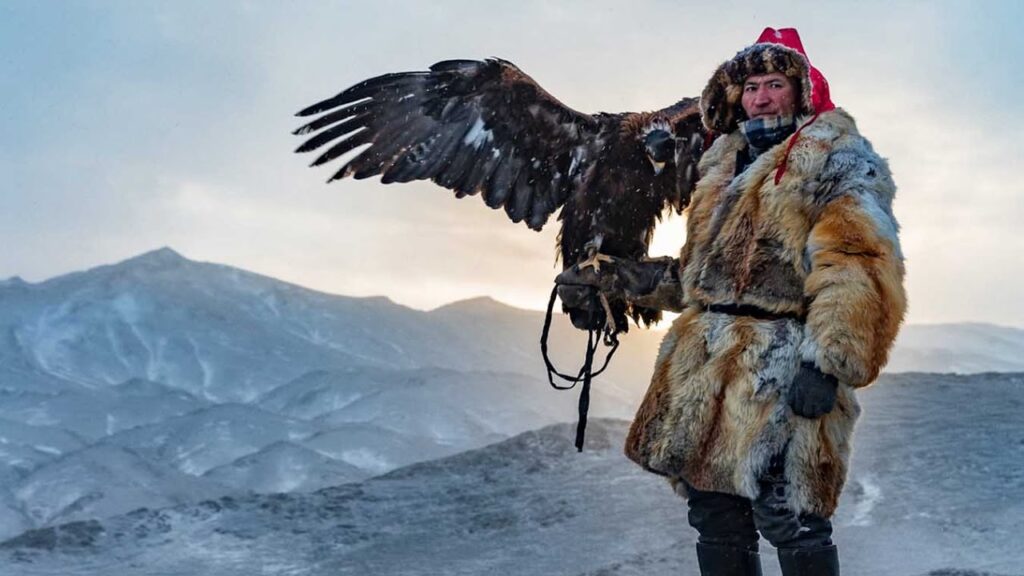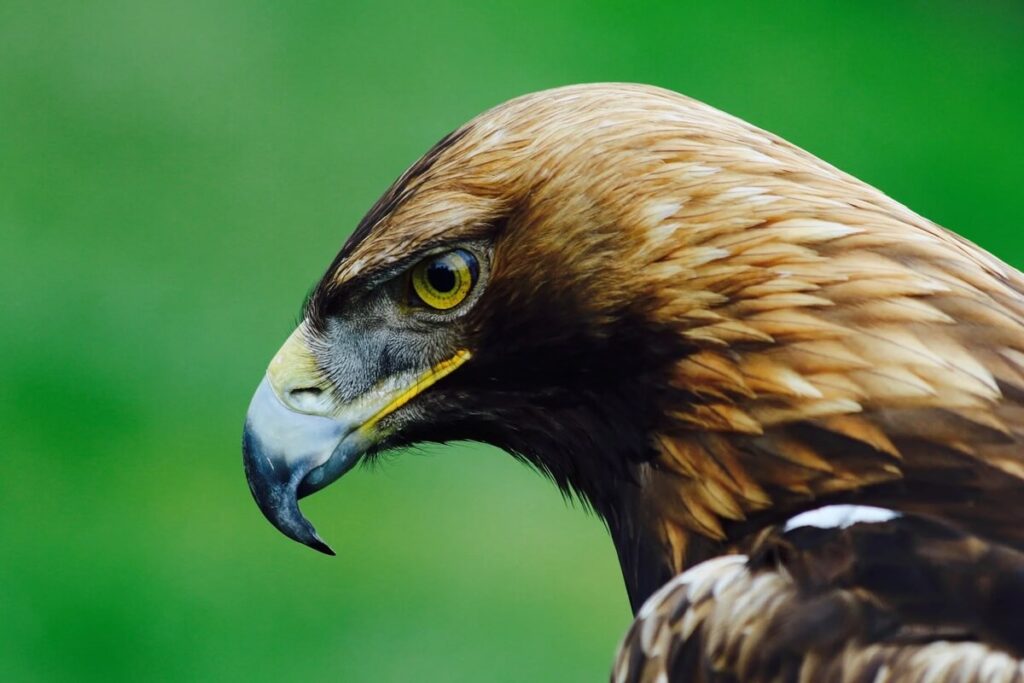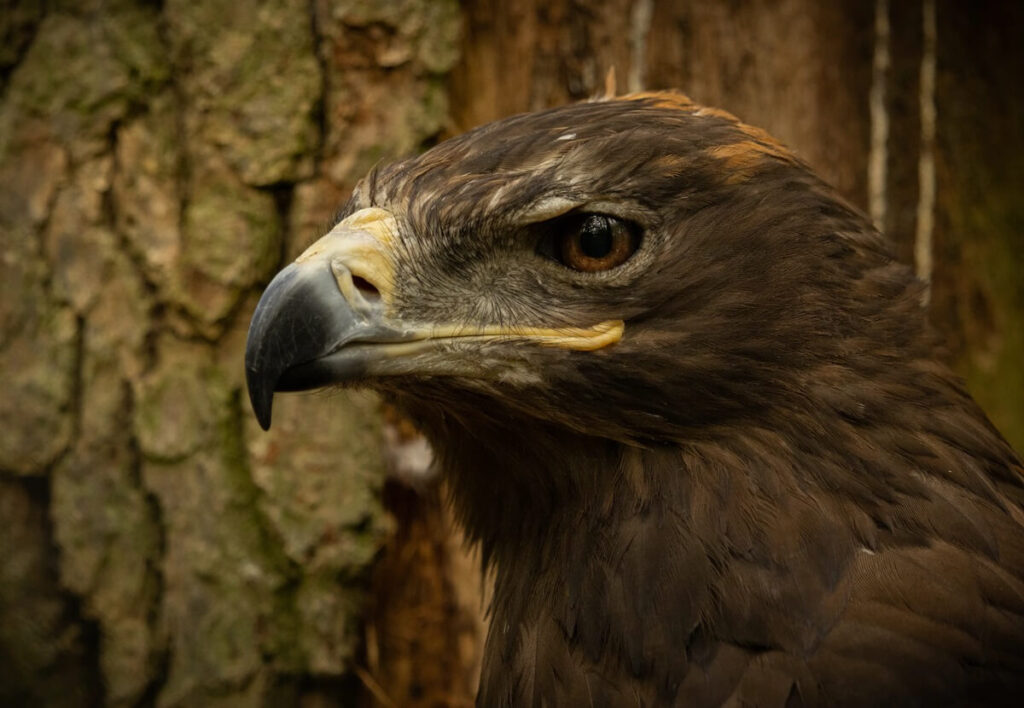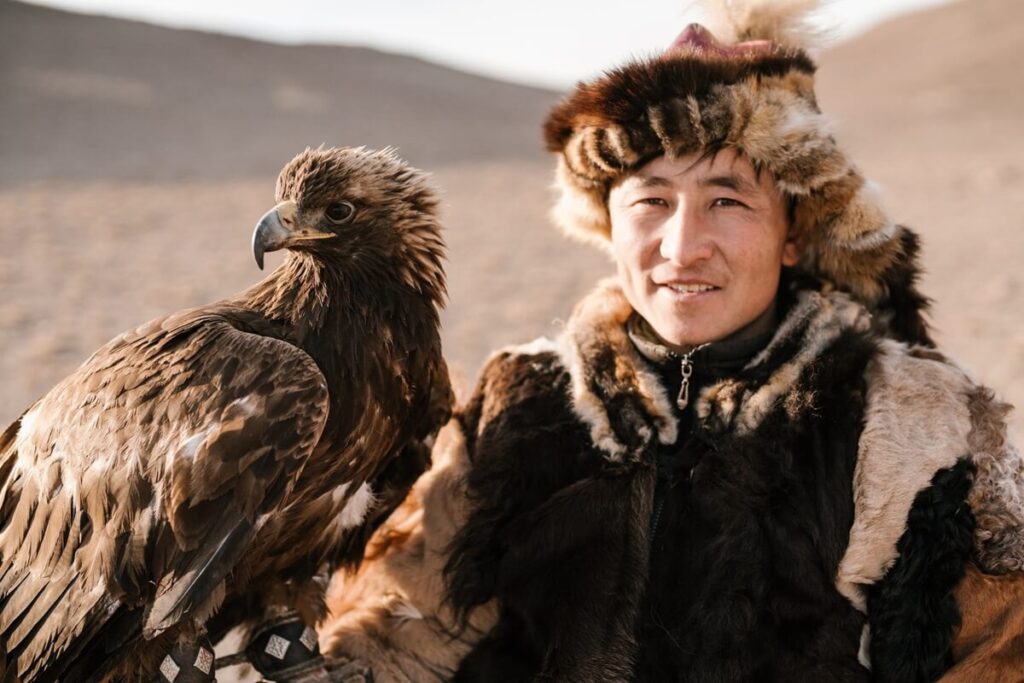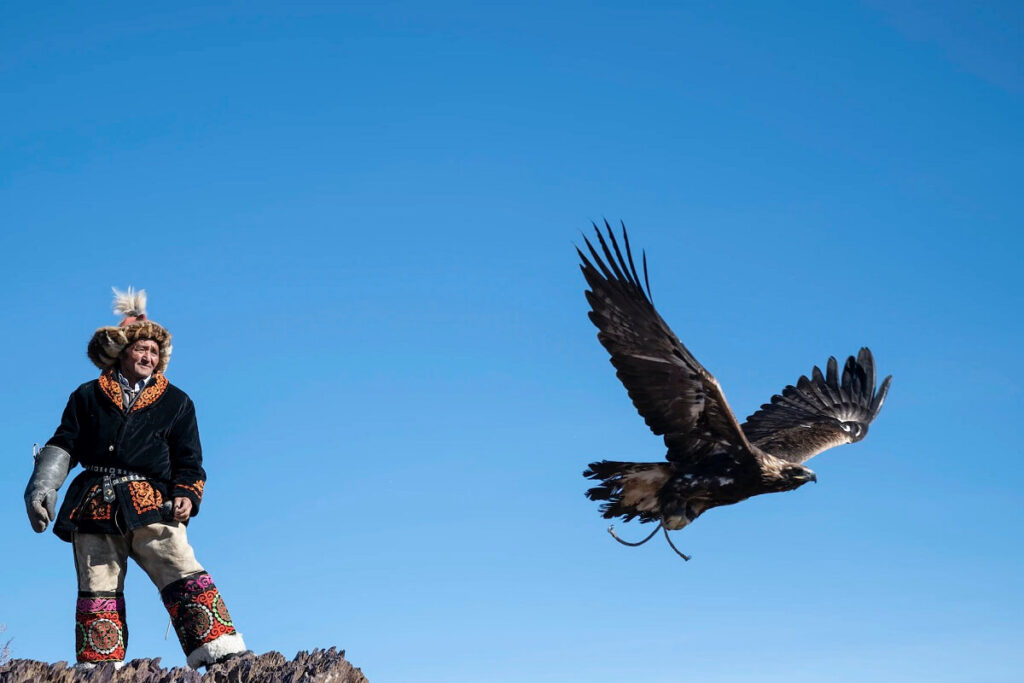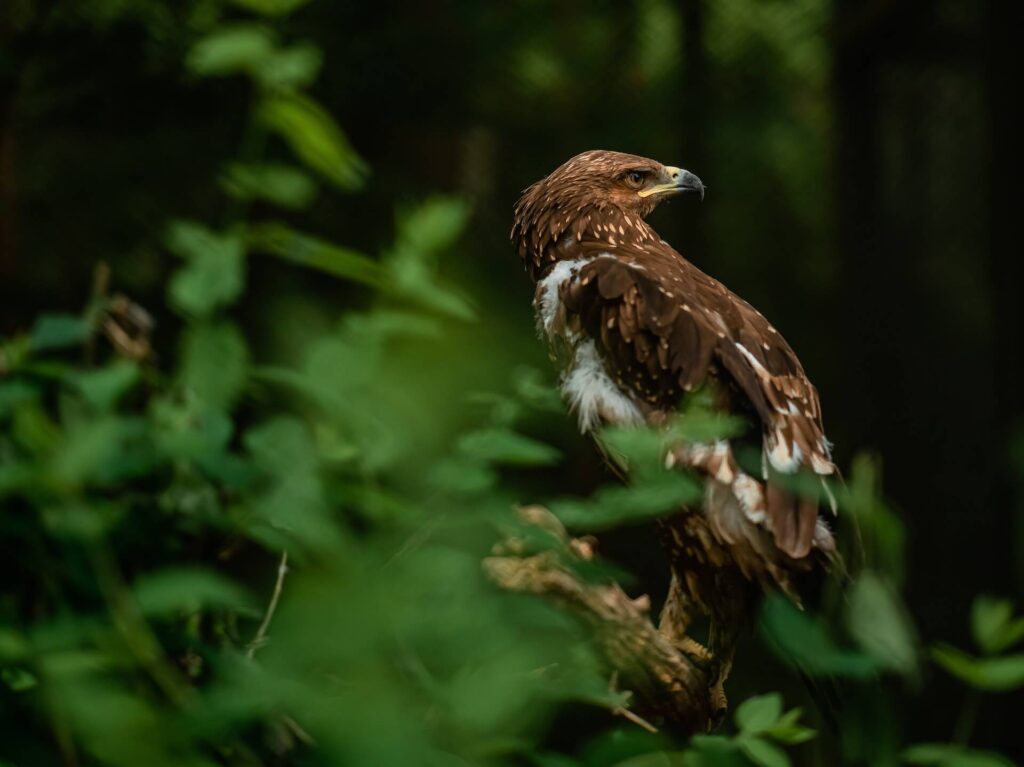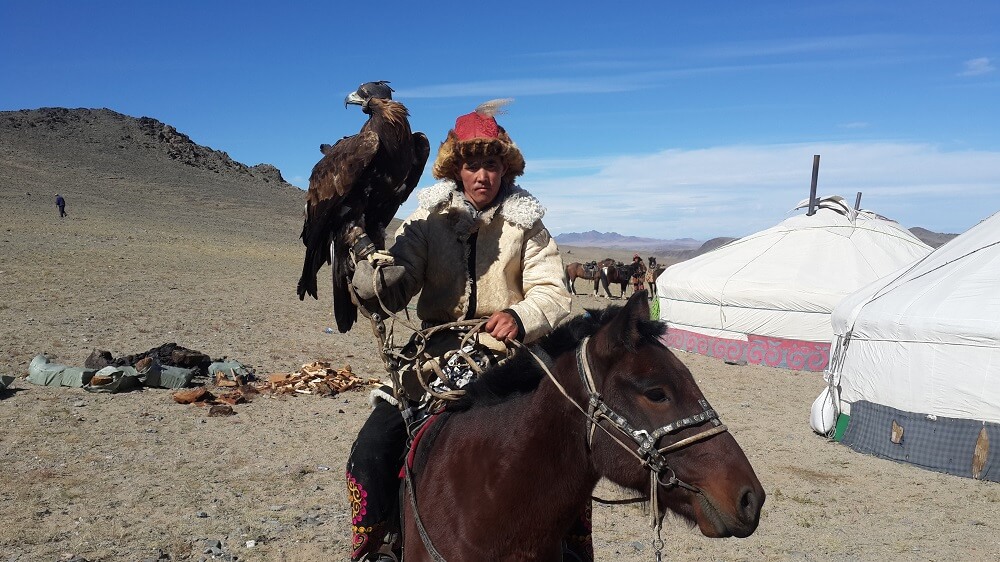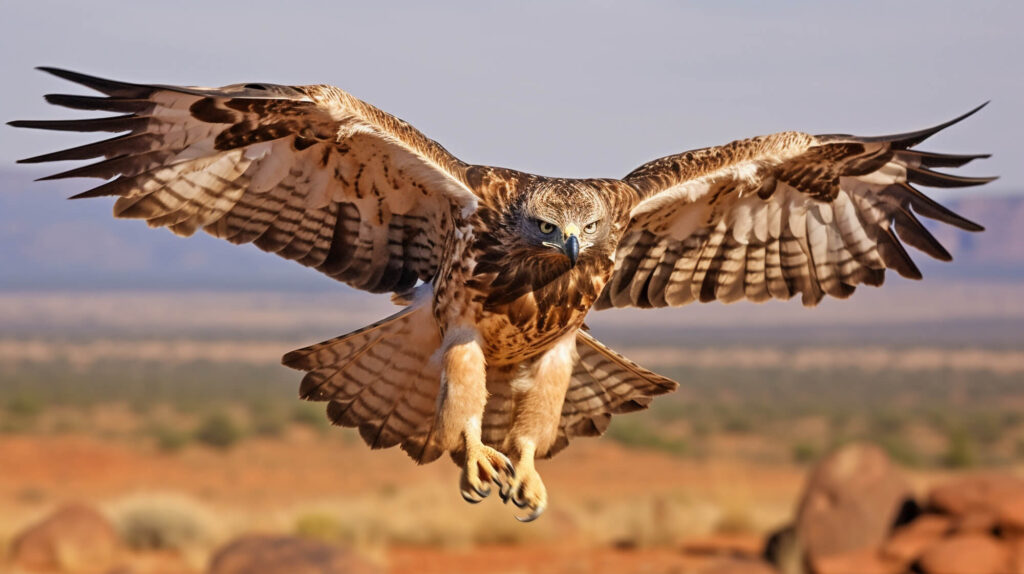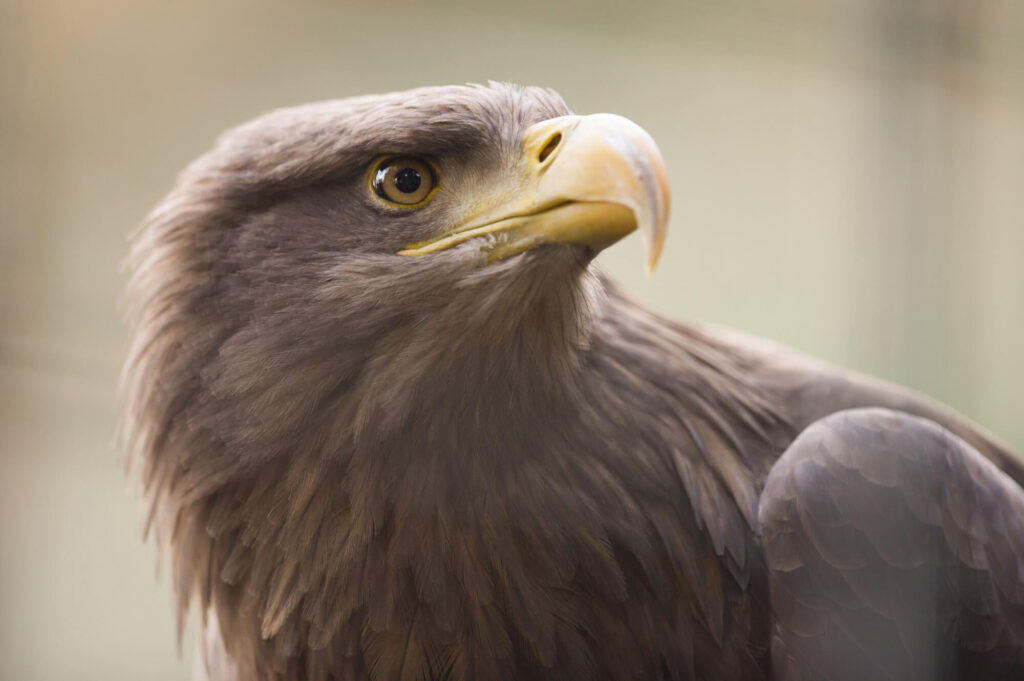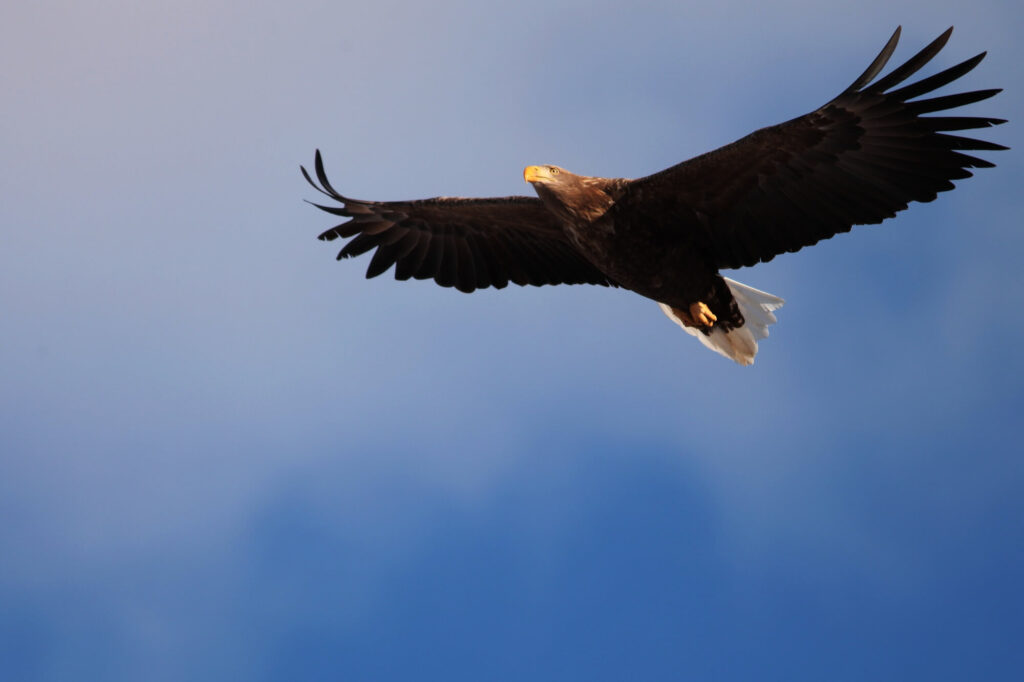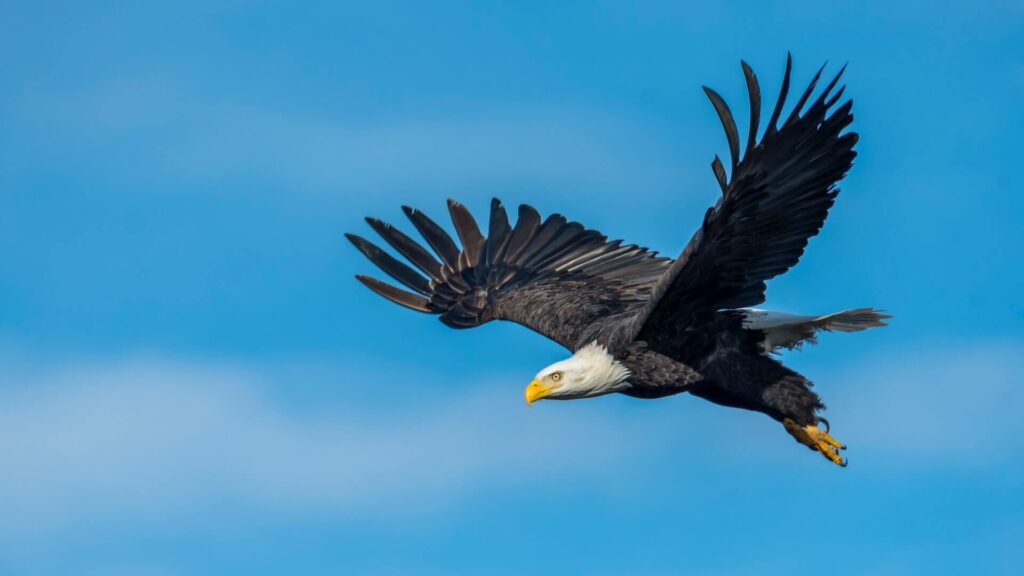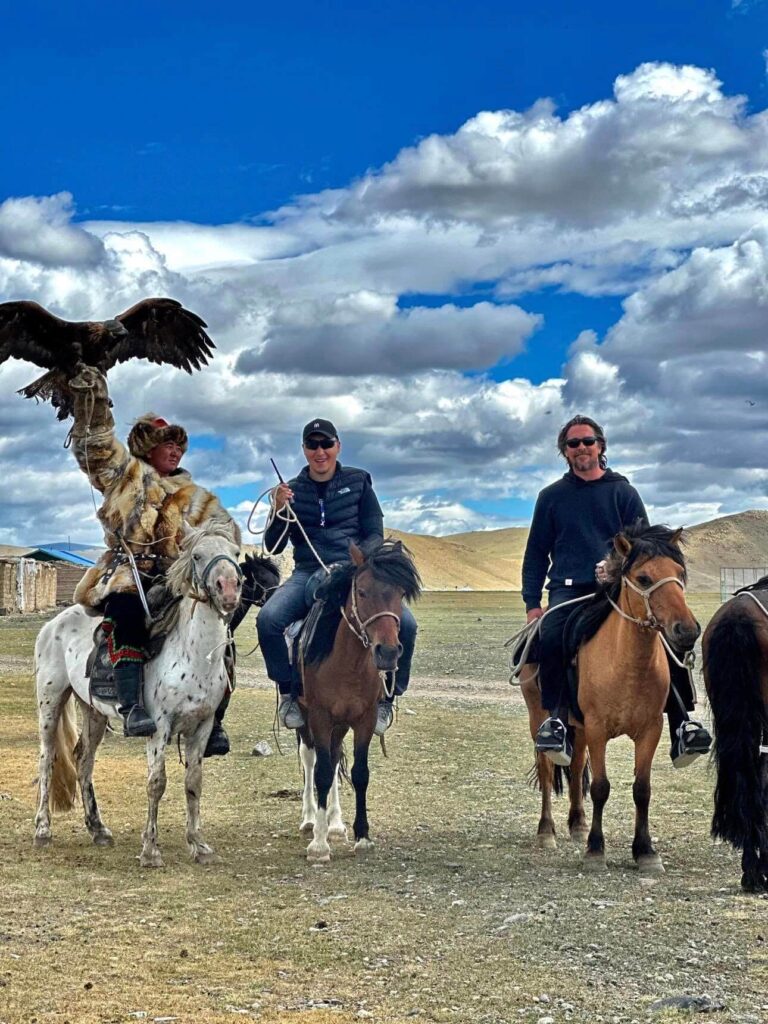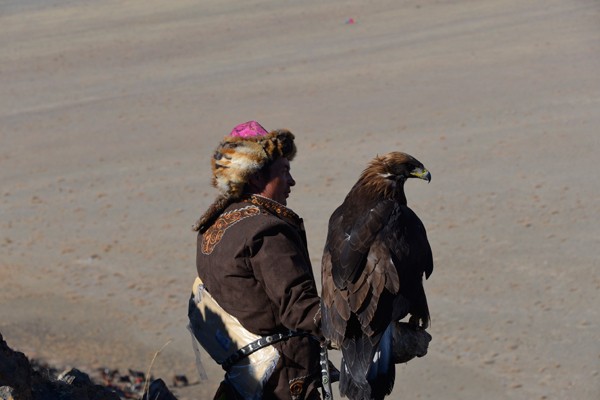In the rugged and remote regions of Western Mongolia, where the Altai Mountains pierce the sky and the land is shaped by the harsh winds of the steppe, the ancient art of eagle hunting thrives.
This practice, traditionally the domain of Kazakh men, involves the training of golden eagles to hunt foxes, hares, and other small game, a skill passed down through generations.
However, in recent years, the image of the “Mongolian Eagle Huntress” has captured the world’s imagination, symbolizing a profound shift in cultural dynamics and gender roles within this ancient tradition.
We offer you GOLDEN EAGLE FESTIVAL PHOTOGRAPHY TOUR. Come and enjoy the stunning landscape that is covered with ancient mountains, rivers, and Mongolian history. Join us to watch a great festival with truly great hunters! 🤩🤩
A Historical Tradition
Eagle hunting, known as berkutchi, is believed to have origins that date back over 4,000 years, with roots in Central Asia’s nomadic tribes. The tradition was brought to Mongolia by Kazakh people, who settled in the western regions of the country during the 19th century.
For centuries, this practice was not only a means of survival in the harsh Mongolian winters but also a revered art form, steeped in rituals and cultural significance.
The relationship between the hunter and the eagle is one of mutual respect and deep understanding.
The process of training an eagle is arduous and requires immense patience, with hunters typically capturing young eagles from their nests and spending years developing a bond with the bird.
These majestic creatures, with wingspans reaching over six feet, become formidable partners in the hunt, using their keen eyesight and powerful talons to capture prey.
The Rise of the Eagle Huntress
Traditionally, eagle hunting was an exclusively male pursuit, with the skills and knowledge passed from father to son.
However, the 21st century has seen a remarkable break from this norm with the emergence of female eagle hunters, the most famous of whom is Aisholpan Nurgaiv, a young Kazakh girl whose story became the subject of the acclaimed documentary, The Eagle Huntress.
Aisholpan, born into a family of eagle hunters, began training with her father at the age of 13. Despite facing skepticism and resistance from some in her community, who viewed eagle hunting as a male-only tradition, Aisholpan’s determination and skill quickly became evident.
In 2014, she entered the annual Golden Eagle Festival in the town of Ölgii, competing against seasoned male hunters. Her victory not only stunned the local community but also caught the attention of the global media, catapulting her into international fame.
Aisholpan’s story challenges the traditional gender roles within her culture and has inspired a new generation of young women in Mongolia and beyond.
Her success has sparked debates about the role of women in preserving and evolving ancient traditions and has highlighted the potential for cultural practices to adapt and thrive in the modern world.
The Impact and Legacy
The story of the Mongolian eagle huntress has had a profound impact on both the local and global stages. In Mongolia, the acceptance of female eagle hunters is gradually increasing, as more girls and young women express interest in learning the art.
This shift reflects broader changes in Mongolian society, where gender roles are becoming more fluid, and opportunities for women are expanding in various fields.
Globally, the image of the eagle huntress has become a symbol of empowerment, resilience, and cultural pride.
The story of Aisholpan and other young women like her resonates with audiences around the world, transcending cultural boundaries and challenging stereotypes about gender and tradition.
Moreover, the attention brought to eagle hunting by figures like Aisholpan has also helped to preserve and promote this ancient art form, ensuring its survival in the face of modernization and cultural homogenization.
The annual Golden Eagle Festival, which now attracts tourists from around the world, serves as both a celebration of this unique tradition and a platform for young hunters, male and female, to showcase their skills.
The rise of the Mongolian eagle huntress is a testament to the enduring strength of cultural traditions and the capacity for these traditions to evolve and adapt in response to changing social dynamics.
Through the lens of Aisholpan’s story, we see how the ancient art of eagle hunting has been revitalized, not only as a cultural practice but as a powerful symbol of gender equality and empowerment in the modern world.
The eagle huntress stands as a beacon of resilience, bridging the past and the present, and inspiring future generations to honor and uphold the traditions of their ancestors while forging new paths forward.





